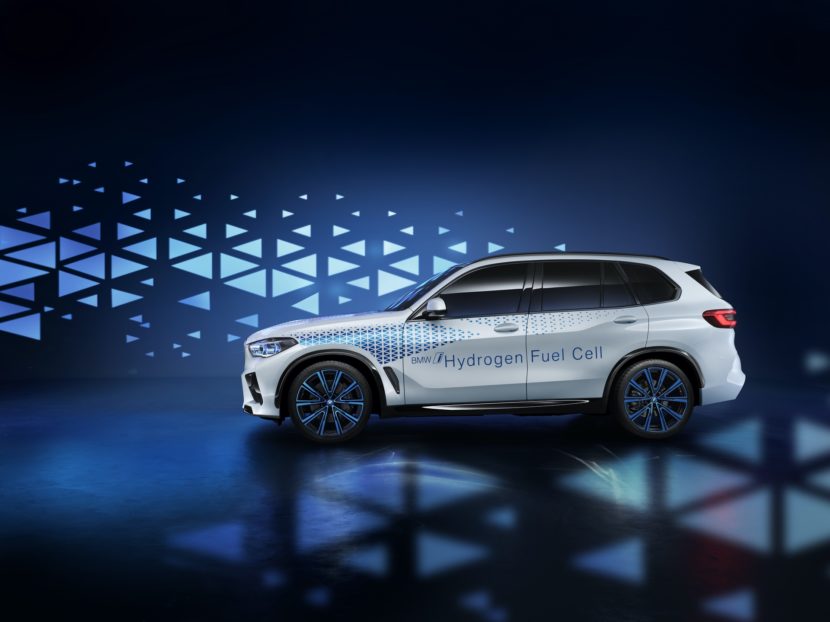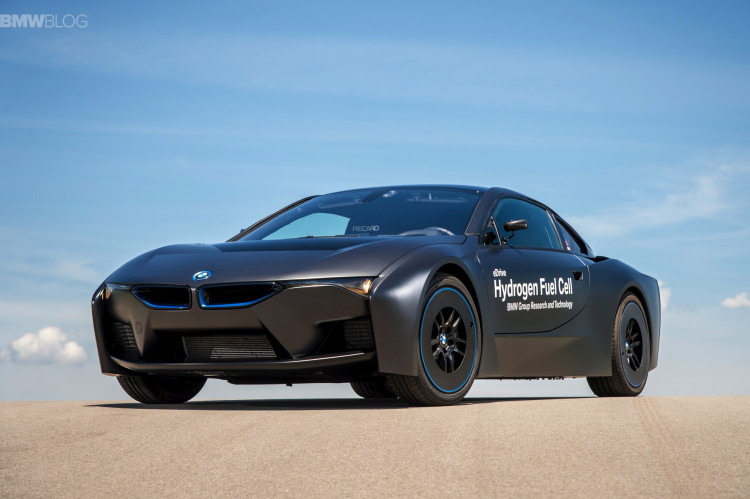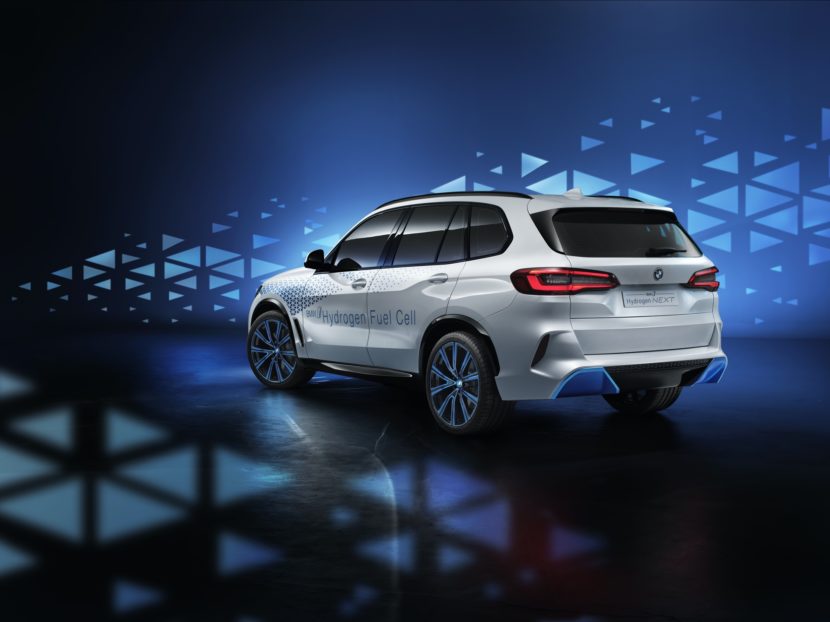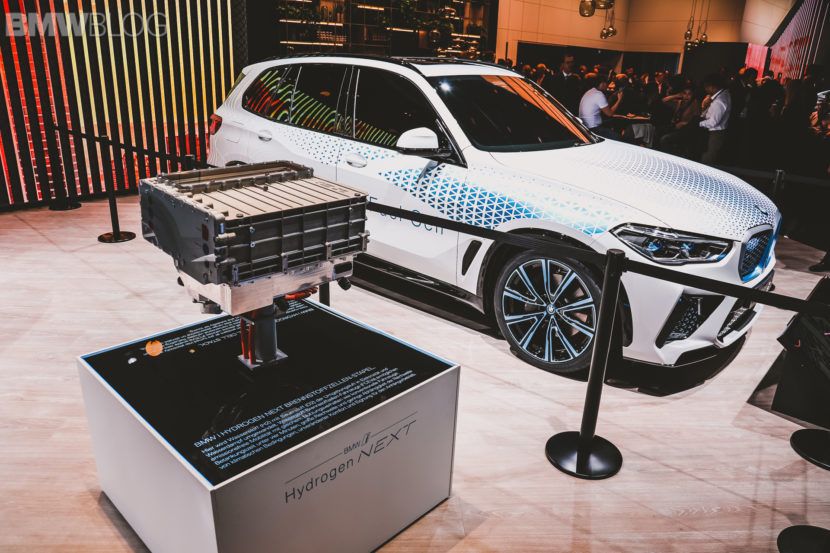BMW is gearing up the development of the second generation of the hydrogen fuel cell powertrain technology. As announced last year, BMW will offer a limited series of the BMW i Hydrogen NEXT based on the X5 Sports Activity Vehicle.
At the final IAA Frankfurt motor show held in September 2019, BMW offered us a glimpse into the future powertrain and mobility technologies. Apart from the already usual plug-in hybrid and electric choices, the Bavarians are also paving the way for the development of a sustainable hydrogen fuel cell technology with the study of a future fuel cell electric vehicle (or FCEV).
The BMW i Hydrogen NEXT showcar gave us a brief preview regarding the potential of the fuel cell electric drive, expected to be further deployed into mass production cars in a time horizon of up to 5-6 years.
The hydrogen-powered electric BMWs are still a distant future possibility, as right now, the refueling infrastructure and hydrogen fuel prices are not yet competitive and attractive enough to justify an early mass market introduction of such vehicles.
First Hydrogen BMW Dates To 1979
But for BMW, hydrogen or fuel cell are not a new, unexplored topic. The earliest experiments can be traced back to 1979, when the carmaker launched the 520h model based on the E12 5 Series generation. The business sedan could run on either gasoline or liquid hydrogen. The BMW 520h used a set of super-insulated cryogenic tanks for storing the hydrogen fuel and was equipped with a 3.5-liter direct injection engine.
Also, between 2005 and 2007, BMW produced the Hydrogen 7 model based on the E66/E66 generation, using the 760i/760Li V12 powerplant modified to run on both gasoline and hydrogen fuel.
Furthermore, in 2015, BMW showed the world the eDrive Hydrogen Fuel Cell prototype, based on a modified i8 chassis, and an F07 5 Series GT equipped with a fuel cell electric powertrain.
Coming back to current days, BMW Group estimates that the hydrogen fuel cell will become a feasible mobility alternative by 2024 or 2025, when the automotive conglomerate forecasts to introduce such models into serial production.
Collaboration With Toyota
As revealed last Fall, BMW Group is already working hard at the development of the 2nd generation of the its hydrogen fuel cell powertrain technology, in close collaboration with Toyota. The Japanese automotive giant has a strong knowledge and background in the construction of FCEVs, the Mirai model being the best example in this respect.
At the time, BMW said that the substantial qualities of the new FCEV technology dramatically contributes to a greener environment, because such vehicles basically emit solely pure water vapors.
In addition, the range of FCEVs is expected to exceed that of similar pure electric cars, thus helping to reduce range anxiety. Not to mention a fast refueling time that could be enabled by hydrogen fuel cell, comparable to the current refueling time needed for conventional ICE-powered vehicles.
Last, but not least, another strong argument in favor of hydrogen fuel cell is the attractive peak output and overall powertrain potency. The German constructor also finds the hydrogen fuel cell powertrain especially suitable for the high-end BMW models and larger vehicles.










































































